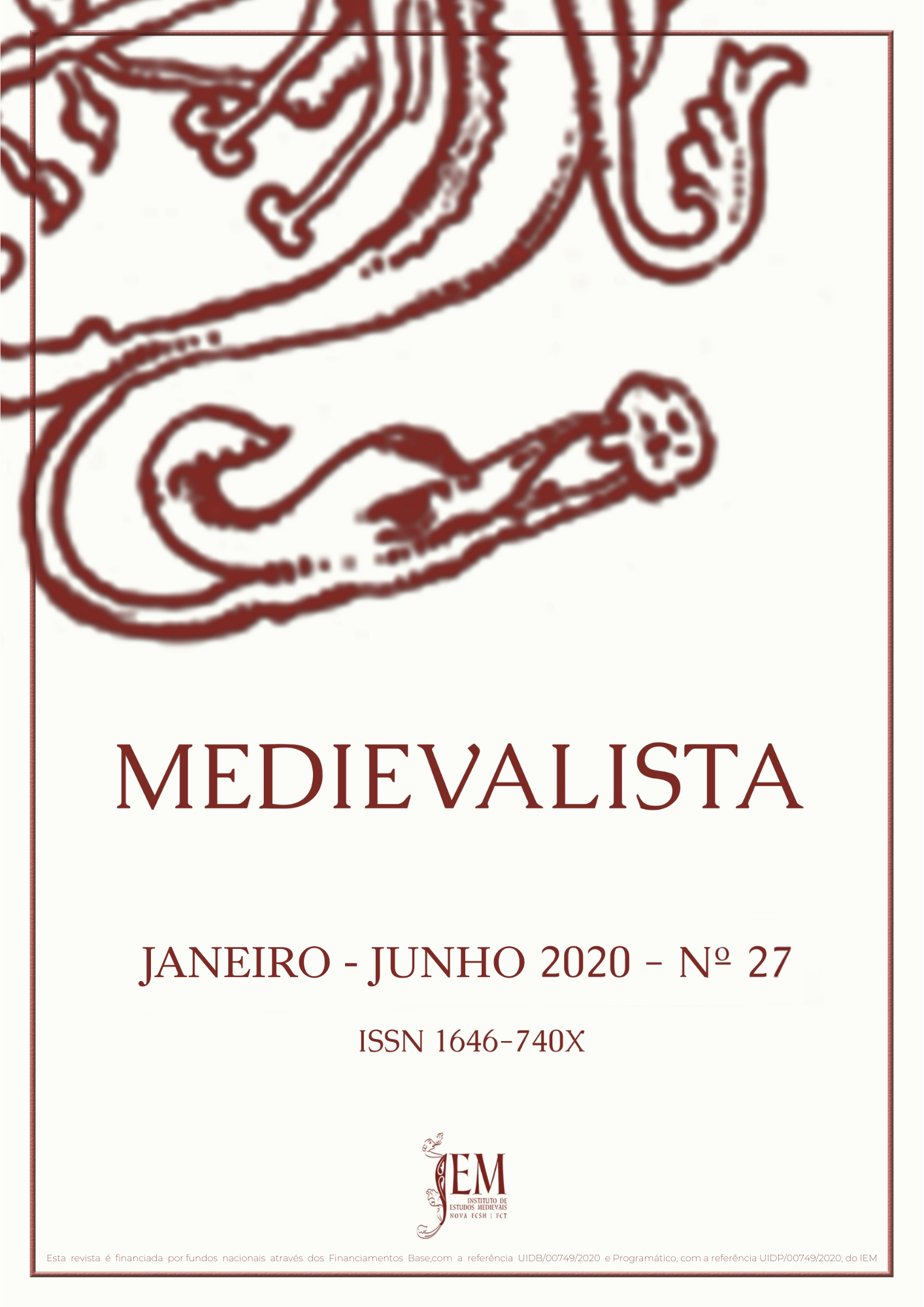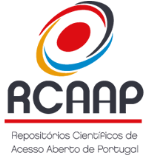El país del que vienen los monstruos
sobre el fīfẹlcynnes eard en Beowulf, v. 104
DOI:
https://doi.org/10.4000/medievalista.2846Palavras-chave:
Anglosajón, Semántica, Beowulf, Monstruosidad, ExilioResumo
El texto busca analizar semántica y culturalmente la expresión fīfẹlcynnes earden el poema épico-elegíaco anglosajón Beowulf. El análisis se enfoca centralmente en el primero de esos términos (fīfẹl-), particularmente complejo en su explicación, con referencia particular a sus lazos con la imaginería bíblica y dos literaturas vernáculas cercanas al texto anglosajón, la irlandesa y la nórdica antigua. El texto propone que, a diferencia de una asociación directa con un carácter llanamente monstruoso, habitual en las traducciones, la expresión se refiere a un espacio de salvajismo y desmesura.
Referencias Bibliográficas
Fuentes
Beowulf. Ed. R. D. Fulk, Robert Bjork y John Niles. in Klaeber’s Beowulf and the Fight at Finnsburgh. Fourth Edition. Toronto: University of Toronto Press, 2008.
Gísla Saga. Ed. Björn Þórólfsson y Guðni Jónsson. in Vestfirðinga sögur, Íslenzk fornrit. vol. VI. Reykjavík: Hið íslenzka fornritafélag, 1943.
Hávamál. Ed. Jónas Kristjánsson y Vésteinn Ólasson. in Eddukvæði. vol. I. Reykjavík: Hið íslenzka fornritafélag, 2014.
The Exeter Book. Ed. Geogre Krapp y Elliot Van Kirk Dobbie – The Anglo-Saxon Poetic Records: A Collective Edition. vol. III. Nueva York: Columbia University Press, 1936.
Waldere. Ed. R. D. Fulk, Robert Bjork y John Niles. in Klaeber’s Beowulf and the Fight at Finnsburgh. Fourth Edition. Toronto: University of Toronto Press, 2008.
Estudios
BAKER, Peter – Honour, Exchange and Violence in Beowulf. Woodbridge: DS Brewer, 2013.
BAZELMANS, Jos – By Weapons Made Worthy: Lords, Retainers and Their Relationship in Beowulf. Amsterdam: Amsterdam University Press, 1999.
BLÖNDAL MAGNÚSSON, Ásgeir – Íslensk orðsifjabók. Reykjavík: Stófnun Árna Magnússonar, 1989.
BERNÁRDEZ, Enrique – Los mitos germánicos. Madrid: Alianza Editorial, 2000.
BOSWORT, Joseph; TOLLER, Thomas Northcote – An Anglo-Saxon Dictionary. Oxford: Clarendon Press, 1898.
CLARKE, Michael – “The lore of the monstrous races in the developing text of the Irish Sex aetates mundi”. Cambrian Medieval Celtic Studies 63 (2012), pp. 15-50.
CLUNIES-ROSS, Margaret – Prolonged Echoes I-II. Odense: University Press of Southern Denmark, 1994-1998.
COHEN, Jeffrey Jerome – “Old English Literature and the Work of Giants”. Comitatus 24.1 (1993), pp. 1-32.
COHEN, Jeffrey Jerome – Monster Theory: Reading Culture. Minneapolis: University of Minessota Press, 1996.
DE VRIES, Jan – Alnordisches etymologisches Wörterbuch. Leiden: Brill, 1962.
FICK, August; FALK, Hjalmar; TORP, Alf – Wortschatz der Germanischen Spracheinheit. Göttingen: Vandenhoeck & Ruprecht, 1909.
GUNNELL, Terry; LASSEN, Annette – The Nordic Apocalypse Approaches to Völuspá and Nordic Days of Judgement. Turnhout: Brepols, 2013.
GUNNELL, Terry – “How Elvish were the Álfar?”. in WAWN, Andrew (Ed.) – Constructing Nations, Reconstructing Myth: Essays in Honour of T. A. Shippey. Turnhout: Brepols, 2007, pp. 111-130.
HALL, Alaric – Elves in Anglo-Saxon England: Matters of Belief, Health, Gender and Identity. Woodbridge: The Boydell Press, 2007.
HARLAN-HAUGHEY, Sarah – The Ecology of the English Outlaw in Medieval Literature: From Fen to Greenwood. Londres: Routledge, 2016.
HILL, John M. – The Cultural World in Beowulf. Toronto: University of Toronto Press, 1995.
HINES, John – The Anglo-Saxons from the Migration Period to the Eighth Century. Woodbridge: The Boydell Press, 1997.
HOLYOAKE, Francis – Dictionarium Etymologicum Latinum. Londres: Felix Kingston, 1633.
JAKOBSSON, Ármann – The Troll Inside You: Paranormal Activity in the Medieval North. Nueva York: Punctum Books, 2017.
JOCHENS, Jenny – “The Illicit Love Visit: An Archaeology of Old Norse Sexuality”. Journal of the History of Sexuality 1.3 (1991), pp. 357-392.
KROLL, Norma – “Beowulf: The Hero as Keeper of Human Polity”. Modern Philology, 84.2 (1986), pp. 117-129.
KROONEN, Guus – Etymological Dictionary of Proto-Germanic. Leiden: Brill, 2003.
LERATE, Jesús; LERATE, Luis – Beowulf y otros poemas anglosajones. Madrid: Alianza Editorial, 1999.
MAGENNIS, Hugh – Images of Community in Old English Poetry. Cambridge: Cambridge University Press, 1996.
MAGOUN, Francis – “Fīfẹldore and the Name of the Eider”. Namn och Bygd, 26 (1940), pp. 94-114.
MCKINNELL, John – “Wisdom from the dead: The Ljóðatal section of Hávamál”. Medium Aevum 76.1 (2007), pp. 85-115.
MELLINKOFF, Ruth – “Cain's monstrous progeny in Beowulf: part II, post-diluvian survival”. Anglo-Saxon England 9 (1980), pp. 183-197.
MERKELBACH, Rebecca – “The Monster in Me: Social Corruption and the Perception of Monstrosity in the Sagas of Icelanders”. Quaestio Insularis 15 (2014), pp. 22-37.
MERKELBACH, Rebecca – “Eigi í mannligu eðli: Shape, Monstrosity and Berserkism in the Íslendingasögur”. in BARREIRO, Santiago y CORDO RUSSO, Luciana (Eds.) – Shapeshifters in Medieval North Atlantic Literature. Amsterdam: Amsterdam University Press, 2018, pp. 83-106.
NEIDORF, Leonard – “Cain, Cam, Jutes, Giants, and the Textual Criticism of Beowulf”. Studies in Philology 112.4 (2015), pp. 599-632.
NEVILLE, Jennifer – “Monsters and Criminals: Defining Humanity in Old English Poetry”. in OLSEN, K.; HOUWEN, L. (Eds.) – Monsters and the Monstrous in Medieval Northwest Europe. Paris y Sterling: Peeters, 2001, pp. 103-122.
ORCHARD, Andy – Pride and Prodigies: Studies in the Monsters of the Beowulf-manuscript. Toronto: University of Toronto Press, 1995.
OREL, Vladimir – A Handbook of Germanic Etymology. Leiden: Brill, 2003.
POILVEZ, Marion – “Those Who Kill: Wrong Undone in the Sagas of Icelanders”. in HAHN, Daniela; SCHMIDT, Andreas (Ed.) – Bad Boys and Wicked Women: Antagonists and Troublemakers in Old Norse Literature. Múnich: Herbert Utz Verlag, 2016, pp. 21-58.
PORTER, Edel – “Poesía escáldica”. in BARREIRO, Santiago; BIRRO, Renan (Eds.) – El mundo nórdico medieval: una introducción, vol. 1. Buenos Aires: Sociedad Argentina de Estudios Medievales, 2017, pp. 53-82.
STURTEVANT, Albert Morey – “Semantic Shifts in Certain Scandinavian Words”. Scandinavian Studies 27.1 (1955), pp. 14-22.
VENEGAS LEGÜÉNS, María Luisa – “El elemento fantástico en Beowulf: estructura y significado”. Philologia Hispalensis 3 (1988), pp. 181-188.
VERNER, Lisa – The Epistemology of the Monstrous in the Middle Ages. Nueva York: Routledge, 2005.
WILLIAMS, David – Deformed Discourse: The Function of the Monster in Mediaeval Thought and Literature. Montreal: McGill-Queen’s University Press, 1996.




















